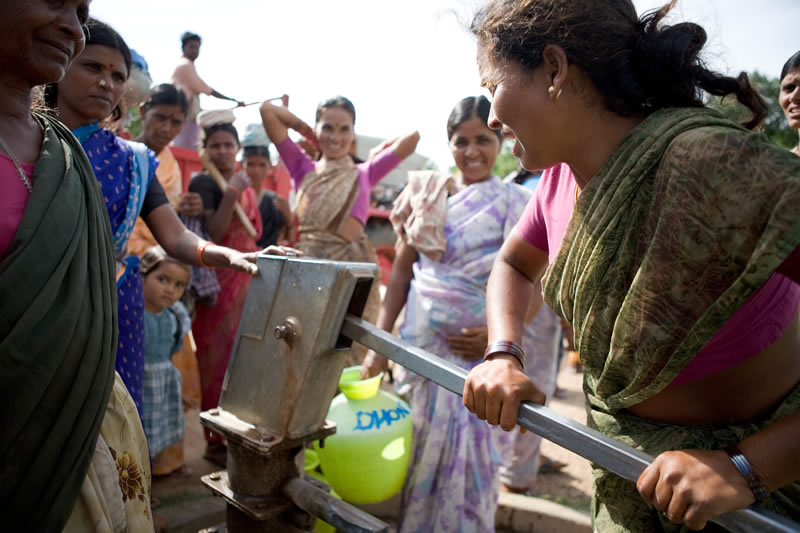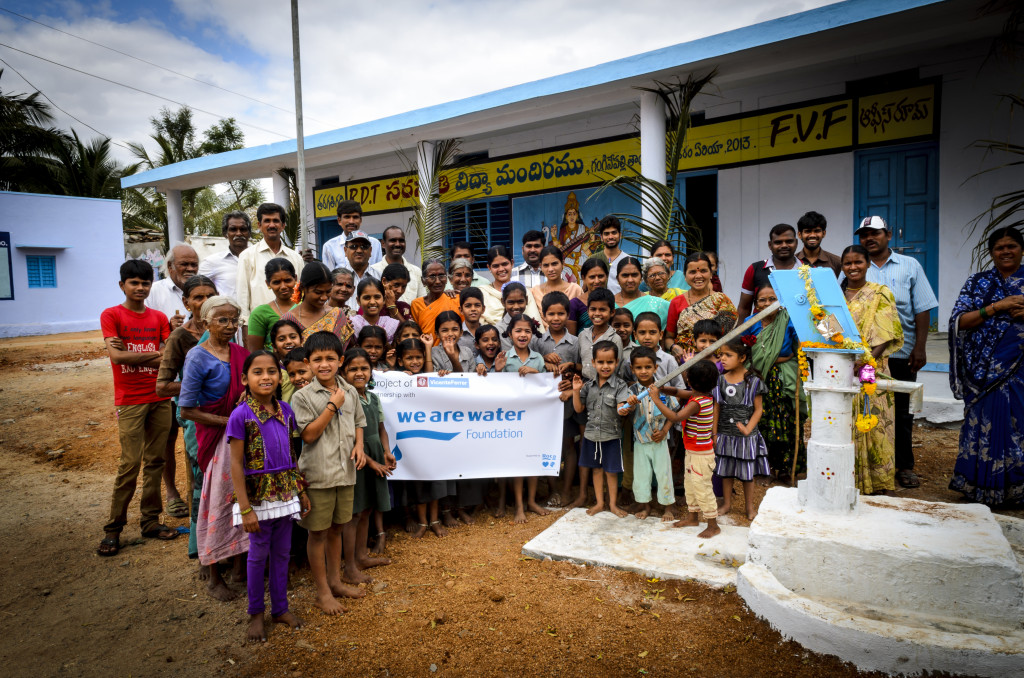Anantapur and Kurnool Districts, Andhra Pradesh State, India
In collaboration with

July 2014- July 2015
Guarantee that 5,245 families can consume 20 litres of water daily for drinking and cooking and are free of water-borne diseases.
Objectives
- Excavation of 10 wells and installation of 10 manually operated water pumps.
- Prevent and reduce diseases transmitted by lack of drinking water consumption.
Beneficiaries
26,225 direct
5,245 families in Dharmavaram, Kothachevuru, Mamillapalli and Mudigubba areas of Bathalapalli region.

On the ground
The area is arid, with many polluted rivers. Despite investments in infrastructure, many low-income communities still need access to drinking water.
The lack of drinking water is a serious problem that affects the quality of life of people in both urban and rural areas. Women and children are forced to travel great distances in search of drinking water, which is often contaminated due to different factors.
Anantapur is one of the most arid districts of the state of Andhra Pradesh. The Rivers Pennar, Hagari and Chitravathi, which run through it, are dry for months due to the scant impact of the monsoon rains between the months of June and November.
Contamination of both rivers and groundwater alike is a serious problem that aggravates the general scarcity of water for different uses. Despite public investment in sanitation and water infrastructure, many low-resource communities in India still lack access to drinking water.

In detail
This drinking water access project forms part of the programme for the development of a RDT/WDT rural health network, with the aim of guaranteeing access to health by all those living in Anantapur and Kurnool Districts.
What are the advantages of hand-operated water pumps?
- They save time and energy, as families no longer have to walk long distances to fetch water.
- They improve personal hygiene and the cleanliness of the surroundings.
- They help with the cultivation of vegetable gardens and the maintenance of livestock.
- They allow for work—especially housework—to be more productive.
- They reduce the workload on women and children, so they can have more time for their personal activities.
- They increase harmony in the community by reducing conflicts associated with the lack of water.
The wells work using a pump that is hand operated. Each water pump provides drinking water for around 75 to 100 families, in other words, between 300 and 400 people.
What will we be doing?
We will be digging 10 wells and installing 10 hand pumps in 10 villages in the areas of Dharmavaram, Kothachevuru, Mamillapalli and Mudigubba, in the Bathalapalli region.
To be able to rely on the drinking water, we need to properly identify the water points, dig the wells and install pumps to bring the water to the surface. The project object of this proposal embraces the digging of wells, the installation of hand-operated water pumps and the start-up. These systems are a highly effective measure for meeting the immediate needs of rural communities far from urban centres, who are denied a reliable water supply. This situation gets worse in the summer, when families are faced with a severe water crisis.


